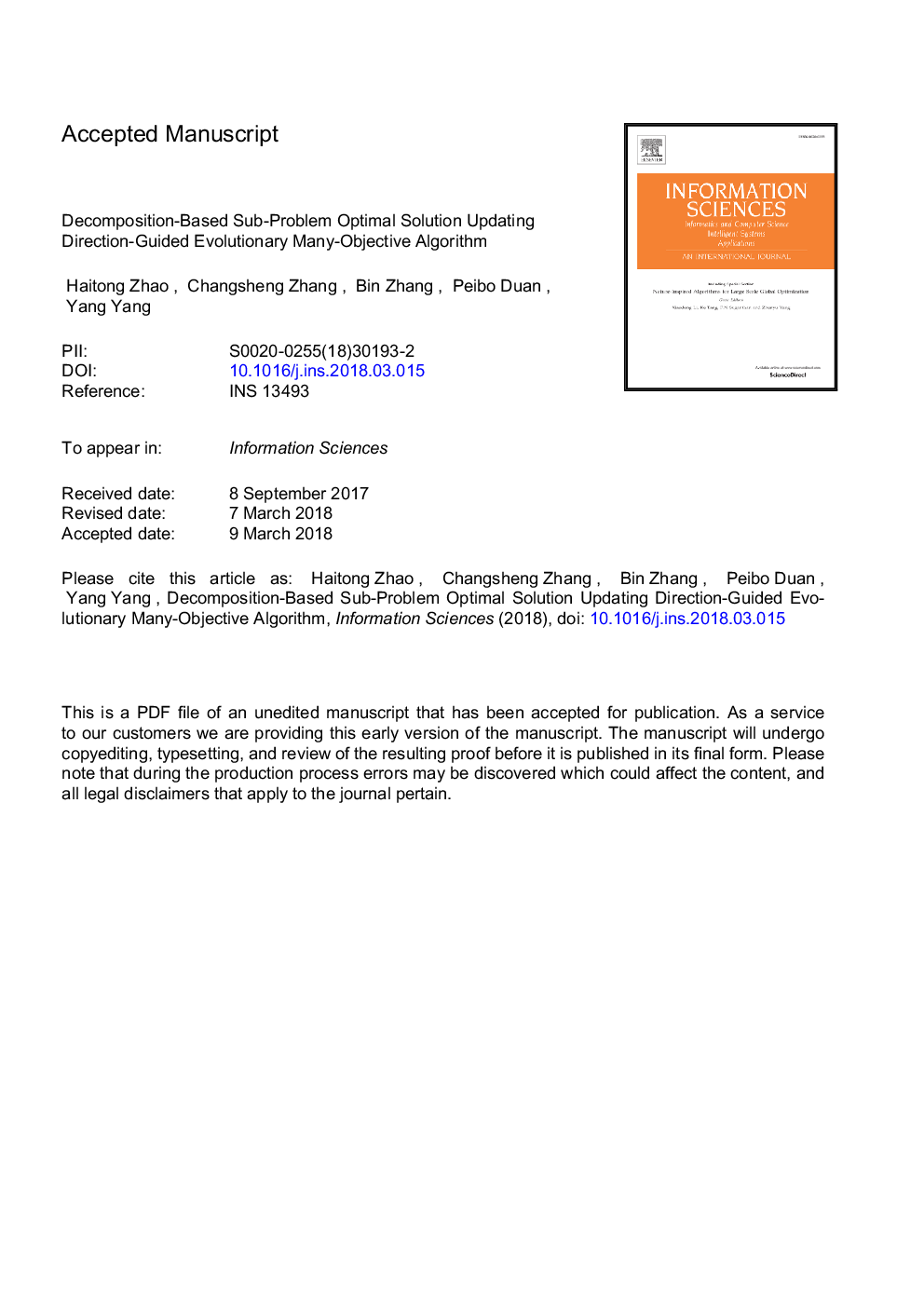ترجمه فارسی عنوان مقاله
الگوریتم چند منظوره تکاملی جهت تکمیل شده بر اساس الگوریتم تکاملی مبتنی بر بهینه سازی زیر مشکل است
عنوان انگلیسی
Decomposition-based sub-problem optimal solution updating direction-guided evolutionary many-objective algorithm
| کد مقاله | سال انتشار | تعداد صفحات مقاله انگلیسی |
|---|---|---|
| 150189 | 2018 | 26 صفحه PDF |
منبع

Publisher : Elsevier - Science Direct (الزویر - ساینس دایرکت)
Journal : Information Sciences, Volumes 448â449, June 2018, Pages 91-111
ترجمه کلمات کلیدی
بسیاری از اهداف بهینه سازی، استراتژی مبتنی بر تجزیه، راه حل زیرمجموعه بهینه، الگوریتم تکاملی،
کلمات کلیدی انگلیسی
Many-objective optimization; Decomposition-based strategy; Optimal sub-problem solution; Evolutionary algorithm;

